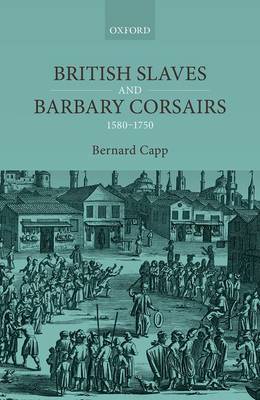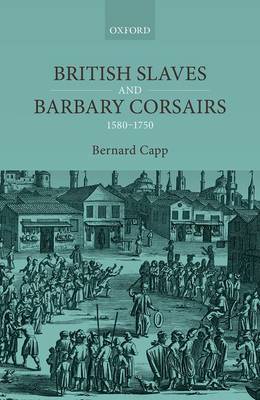
Bedankt voor het vertrouwen het afgelopen jaar! Om jou te bedanken bieden we GRATIS verzending (in België) aan op alles gedurende de hele maand januari.
- Afhalen na 1 uur in een winkel met voorraad
- In januari gratis thuislevering in België
- Ruim aanbod met 7 miljoen producten
Bedankt voor het vertrouwen het afgelopen jaar! Om jou te bedanken bieden we GRATIS verzending (in België) aan op alles gedurende de hele maand januari.
- Afhalen na 1 uur in een winkel met voorraad
- In januari gratis thuislevering in België
- Ruim aanbod met 7 miljoen producten
Zoeken
€ 185,45
+ 370 punten
Omschrijving
British Slaves and Barbary Corsairs is the first comprehensive study of the thousands of Britons captured and enslaved in North Africa in the early modern period, an issue of intense contemporary concern but almost wholly overlooked in modern histories of Britain. The study charts the course of victims' lives from capture to eventual liberation, death in Barbary, or, for a lucky few, escape. After sketching the outlines of Barbary's government and society, and the world of the corsairs, it describes the trauma of the slave-market, the lives of galley-slaves and labourers, and the fate of female captives. Most captives clung on to their Christian faith, but a significant minority apostatized and accepted Islam. For them, and for Britons who joined the corsairs voluntarily, identity became fluid and multi-layered. Bernard Capp also explores in depth how ransoms were raised by private and public initiatives, and how redemptions were organised by merchants, consuls, and other intermediaries. With most families too poor to raise any ransom, the state came under intense pressure to intervene. From the mid-seventeenth century, the navy played a significant role in 'gunboat diplomacy' that eventually helped end the corsair threat. The Barbary corsairs posed a challenge to most European powers, and the study places the British story within the wider context of Mediterranean slavery, which saw Moors and Christians as both captors and captives.
Specificaties
Betrokkenen
- Auteur(s):
- Uitgeverij:
Inhoud
- Aantal bladzijden:
- 210
- Taal:
- Engels
Eigenschappen
- Productcode (EAN):
- 9780192857378
- Verschijningsdatum:
- 5/08/2022
- Uitvoering:
- Hardcover
- Formaat:
- Genaaid
- Afmetingen:
- 160 mm x 237 mm
- Gewicht:
- 462 g

Alleen bij Standaard Boekhandel
+ 370 punten op je klantenkaart van Standaard Boekhandel
Beoordelingen
We publiceren alleen reviews die voldoen aan de voorwaarden voor reviews. Bekijk onze voorwaarden voor reviews.









